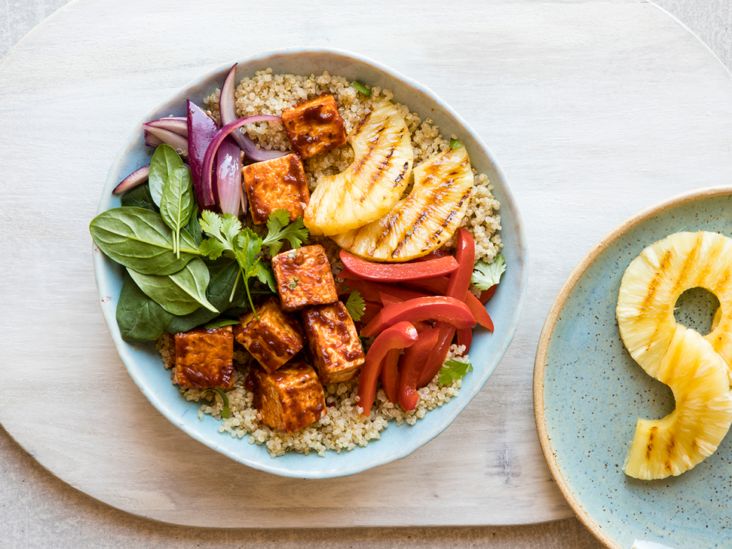
Nourishing Connections: The Power of Food in Women's Wellness
In today's fast-paced world, women often juggle multiple responsibilities, from careers to family obligations, making it easy to overlook the significance of nutrition. As we recognize National Nutrition Month, it's crucial to understand how food not only nourishes our bodies but also fosters connections and enhances overall well-being. Nutrition can be a source of empowerment, an avenue for self-care, and a way to cultivate relationships that contribute to our health.

The Impact of Nutrition on Wellness
Nutrition is not merely about consuming food; it's about nourishing our bodies and minds. Studies show that a balanced diet can significantly improve mood, energy levels, and mental clarity. For women, who often face unique health challenges, prioritizing nutrition can yield better health outcomes. A nutritious diet can reduce the risk of chronic diseases such as heart disease, diabetes, and certain cancers, conditions that disproportionately impact women.
Key Nutritional Insights
Research from the University of Utah emphasizes the role of nutrition in well-being, stating, "Our bodies need ample food every day to keep us balanced and regulated." This underscores the importance of a balanced diet, which includes a variety of fruits, vegetables, whole grains, and lean proteins.
Moreover, as peer health educator Kelly Patrino highlights, "Nutrition can be a powerful tool in managing stress and promoting emotional health." Understanding this connection allows women to harness the power of food in their wellness journeys.
Practical Tips for Busy Women
For many women, the challenge isn't just recognizing the importance of nutrition but finding ways to incorporate healthy eating habits into their hectic schedules. Here are some actionable tips to help you establish a nourishing routine:
-
Meal Prep: Dedicate a few hours each week to prepare healthy meals. This not only saves time but ensures you have nutritious options readily available. Consider batch cooking grains and proteins, and chopping vegetables to create quick, healthy meals throughout the week.
-
Mindful Eating: Take time to savor your meals without distractions. This practice can enhance your relationship with food and help you listen to your body's hunger cues, ultimately leading to healthier choices. According to psychologist Dr. Susan Albers, mindful eating can help combat emotional eating and promote a healthier relationship with food.
-
Incorporate Variety: Experiment with different fruits, vegetables, and whole grains to keep your meals exciting and nutritionally balanced. A diverse diet not only prevents boredom but also ensures you receive a wide range of nutrients. Try incorporating seasonal produce into your meals to maximize freshness and flavor.
-
Stay Hydrated: Remember the importance of hydration. Drinking enough water is crucial for maintaining energy levels and overall health. As a general guideline, aim for at least eight 8-ounce glasses of water per day, adjusting based on activity level and climate.

Community and Support
Engaging with others around food can significantly enhance your wellness journey. Consider joining community cooking classes or wellness workshops that focus on nutrition. These environments provide a supportive atmosphere to learn, share ideas, and create lasting bonds over healthy meals.
Furthermore, sharing meals with friends or family can strengthen relationships and create a supportive environment for healthy eating. According to a 2023 study by the Journal of Nutrition, communal meals can promote healthier eating habits, improve mood, and enhance social connections.
The Role of Community in Wellness
Organizations such as the Wellness House of Annapolis offer free programs supporting healthy living and nutrition education, especially for individuals affected by cancer and their families. Such initiatives highlight the importance of community resources in promoting wellness. Engaging with others in a wellness-focused environment fosters a sense of belonging and accountability, crucial for sustaining healthy habits.
Conclusion: The Holistic Approach to Wellness
As we embrace the power of food in our lives, let’s remember that nourishing our bodies is a vital step toward achieving holistic wellness. By making conscious choices about what we eat, we can enhance our health and well-being while fostering connections with those around us.
Ultimately, nutrition is a vital part of self-care, and prioritizing it can lead to profound benefits for both body and mind. So, as you navigate your busy life, remember that every meal is an opportunity to nurture not only your health but also your connections with others.

Food has always been a vital part of our lives, and in its ability to bring people together, it serves as a reminder that we are not alone in our journeys. Embrace these nourishing connections and let them guide you toward a healthier, more fulfilling life.
For further insights and resources, visit Wellness Utah and explore the various programs that support wellness and nutrition in your community.